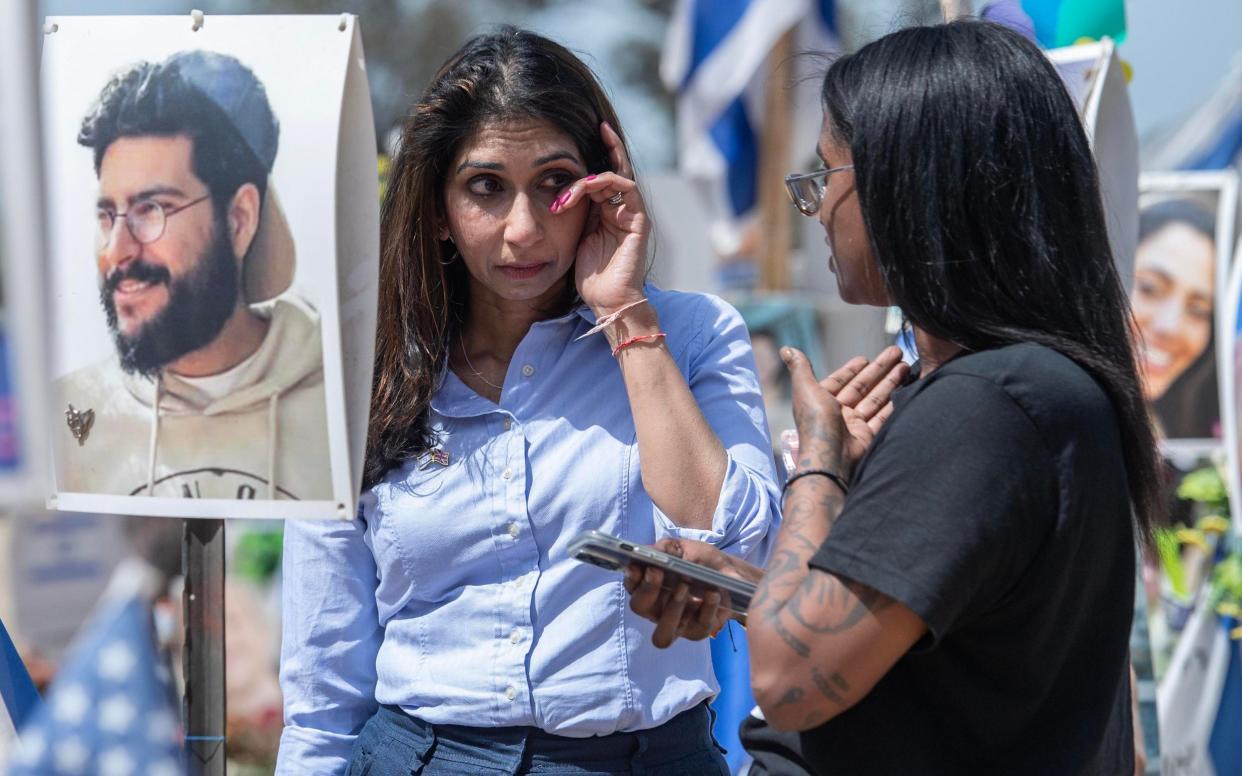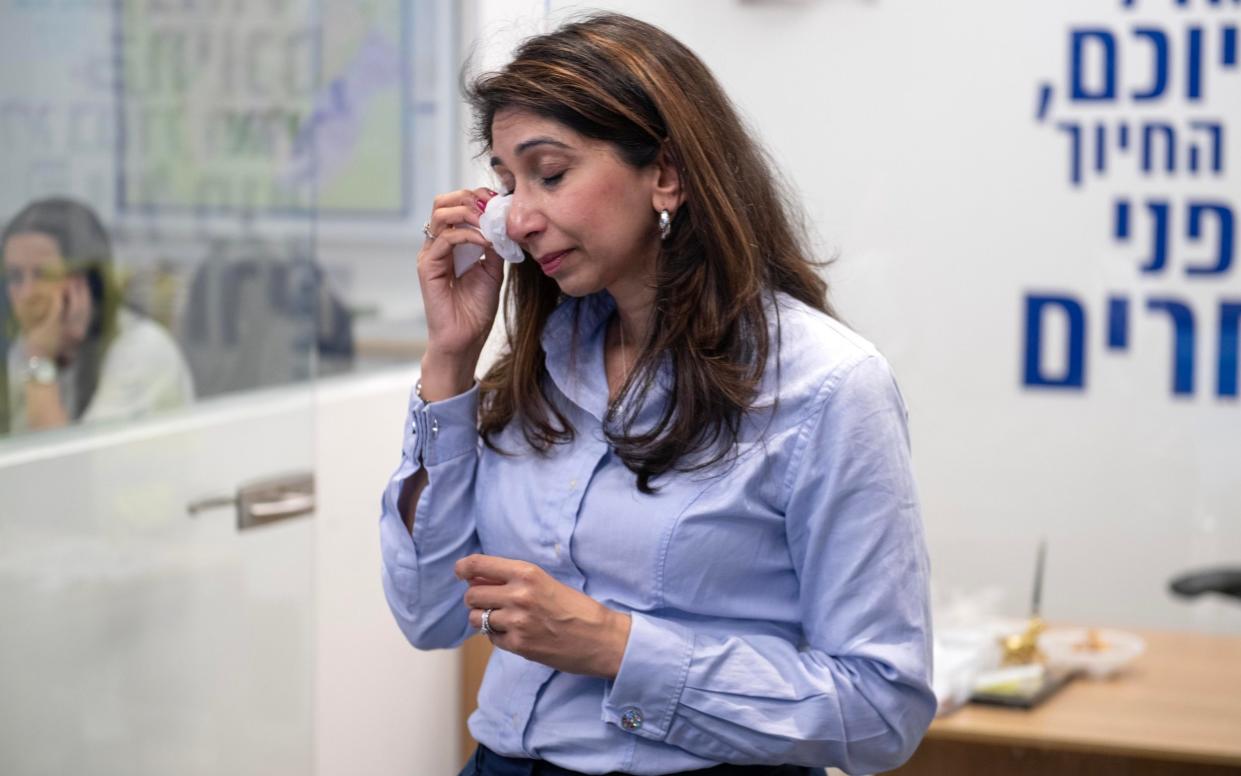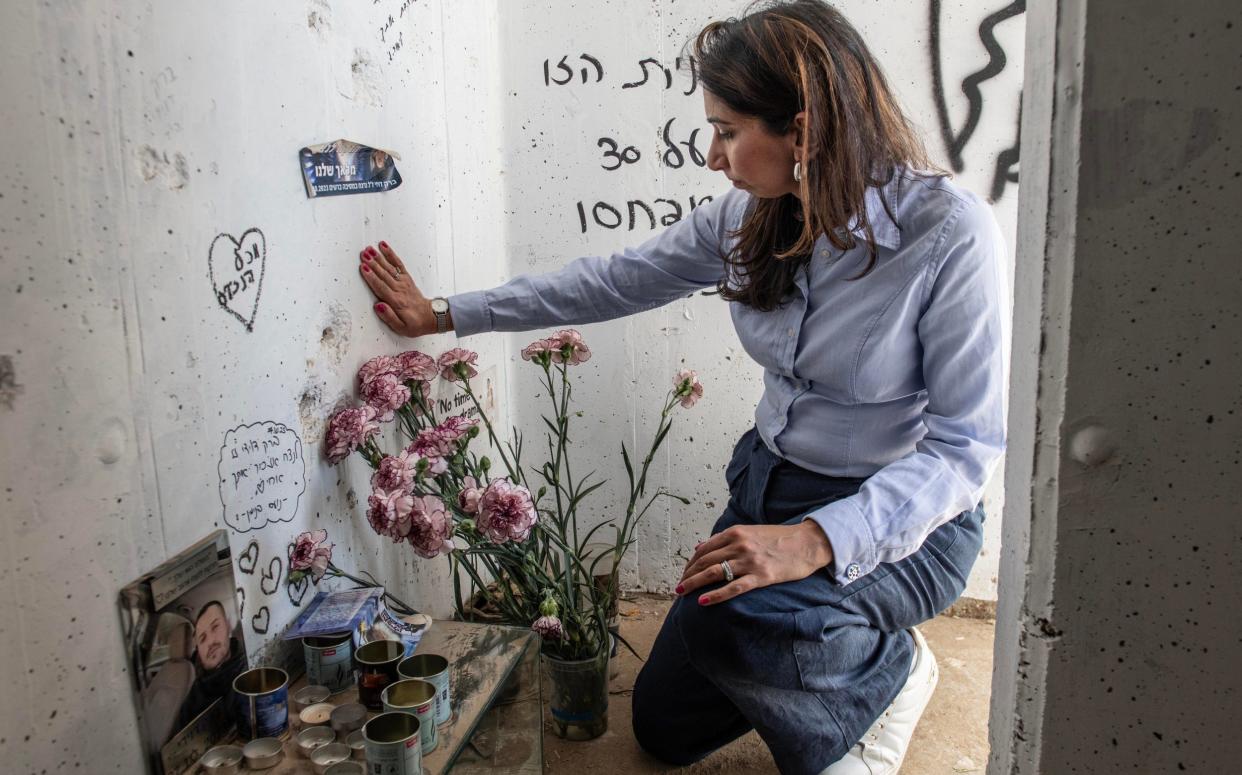‘We will not forget you’: Emotional Braverman offers support to Oct 7 survivors

Suella Braverman breaks down in tears amid the ruins of burnt-out houses in Kfar Aza as she surveys the carnage wrought by Hamas on Oct 7.
Amir Zini is telling the former home secretary how his son Nirel died as he attempted to flee with his girlfriend through the window of their safe room but was gunned down. His corpse was badly burned. His head was missing, presumed to have been taken back to Gaza as a macabre trophy.
“How does a parent begin to grieve for the loss of a child killed with such brutality?” asks Mrs Braverman.
This is the first day of her four-day tour of Israel, undertaken to better understand what has been happening here over the past six months and as a platform to give her backing to its citizens.
The first leg is a trip to the Gaza envelope – the part of southern Israel that surrounds the Gaza Strip and suffered at the hands of Hamas terrorists. The background rumble of Israeli artillery is a near constant.
Mrs Braverman is perhaps the toughest of the current Right-wing Conservatives, not known for her compassionate side. She once declared that her dream was to see a Telegraph front page with a “plane taking off to Rwanda”. But the horrors of Oct 7 make her cry.

She tells Nira Shpak, a 57-year-old grandmother who spent 22 hours in Kfar Aza hiding from marauding gunmen: “You have friends, you have allies around the world, and we will not forget you.”
Another kibbutz house, bullet-riddled, has been turned into a shrine for a dead son by his grieving parents. “An unspeakable tragedy,” Mrs Braverman writes in the visitors’ book at its entrance. “A heart-breaking waste of life. We will never forget the pain you have endured, and we work to support Israel and the Jewish peoples around the world. With prayers, love and solidarity.”
In the aftermath of the attack, Mrs Shpak, a reservist colonel in the Israel Defense Forces, went house to house identifying the dead.
A few doors from where Nirel Zini’s burnt corpse was discovered, she found the headless body of Aviad Edri. His head was found 300 yards away, in a field and with a knife next to it, dropped before it could be taken to Gaza. Six of the 64 people murdered in the kibbutz were decapitated.
Mrs Braverman has become one of Israel’s staunchest defenders. After she arrived in Tel Aviv on Sunday night, a British citizen approached her and thanked her for her support.
And on Monday, at the site of the Supernova massacre, another Briton shakes her hand, thanking her for the stand she took against pro-Palestinian marches in London. “It’s great we have people like yourself standing with us,” says Jonny Daniels, 38, asking for a selfie with the politician he calls “the next prime minister”.
At the Supernova site, Mrs Braverman comforts Mazal Tazazo, a 34-year-old Israeli of Ethiopian descent who shows her a board of photos of those murdered there, including two of her closest friends.
Ms Tazazo was hit across the head, blood soaking her body. A Hamas fighter tied ropes around her ankles and began to drag her away, but she played dead and he gave up. She later found cover in the undergrowth and in a car, her survival a near miracle.

On a road nearby, Mrs Braverman visits a bomb shelter used to protect Israelis from rocket attacks launched from Gaza, less than a couple of miles away. Fourteen people were killed as they sheltered inside it, and a further five died just outside.
Hamas militants threw in hand grenades on seven occasions, each one thrown back by Aner Shapira, one of the heroes of Oct 7. The eighth blew up in his face, killing him along with those he was protecting. The shelter has become a shrine.
Up the road in Sderot, the Israeli town whose police station was overrun during Israel’s 9/11, Ms Braverman breaks down in tears as she watches a video of a a father being shot in his car by Hamas gunmen. Two children, aged four and six – not far off the ages of her own children – were orphaned.
“Being here meeting survivors, meeting heroes, has been very powerful for me. It has reinforced in my mind that this is not about Arabs versus Jews or Palestinians versus Israelis,” she says. “This is about right versus wrong. This is about Western civilisation fighting terrorism in the form of Hamas.”
She has, she says, been struck by the survivors’ “doughty resolve”. The stories are inspiring. Mrs Braverman, like Israel itself, will keep on fighting.


